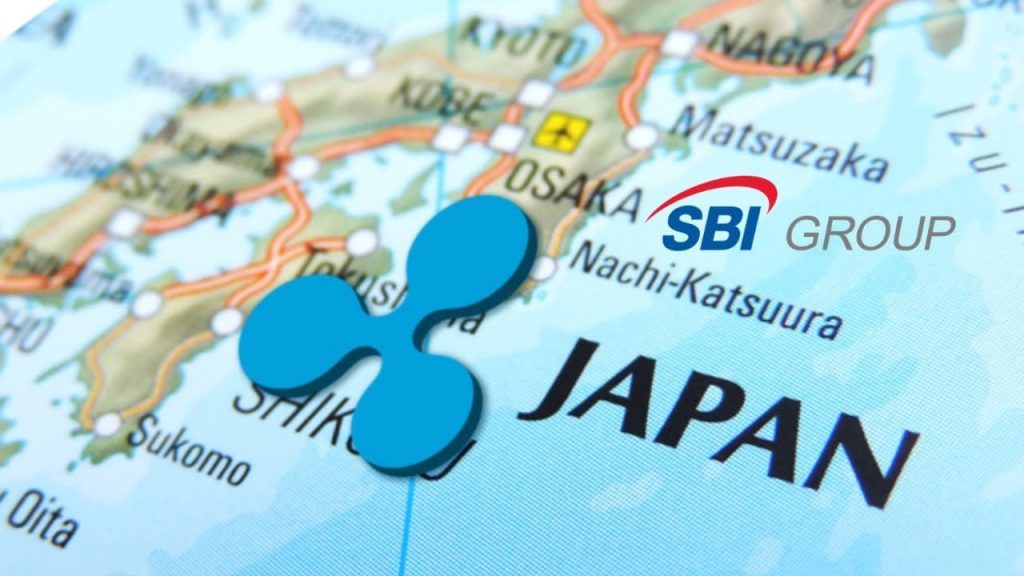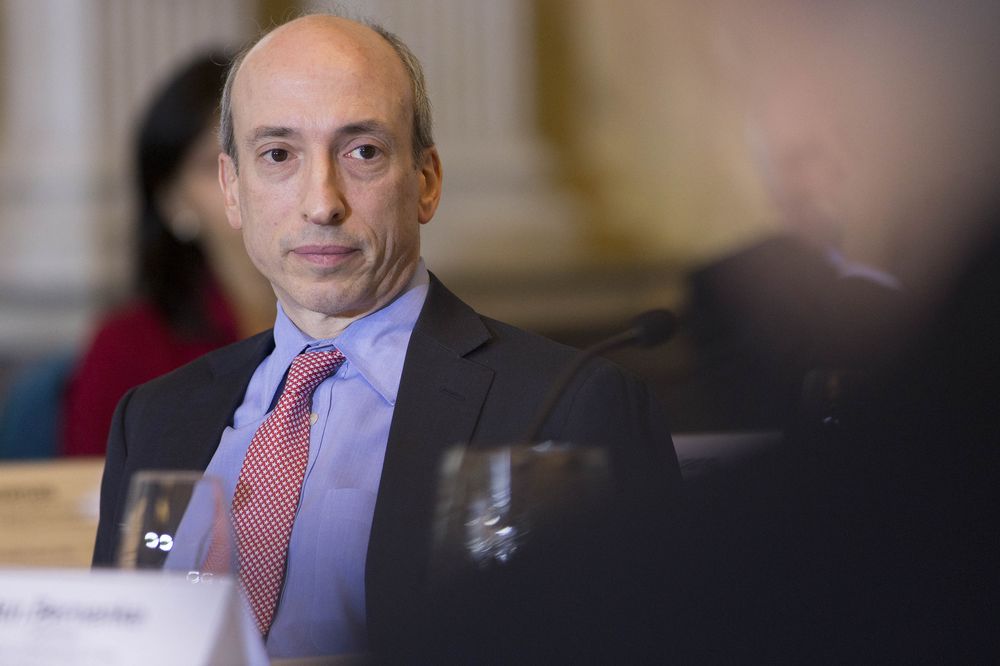Digital assets giant Ripple Labs’ day in court arrived this week, with the pre-trial brought against it by the U.S. Securities and Exchange Commission (SEC)’s kicking off in New York on 22 February via conference call. It was short and didn’t go too well.
The case produced immediate fireworks, with the SEC doubling down on its charges that Ripple illegally sold and promoted XRP which it considers to be a security according to U.S. securities laws. Ripple’s opposed the SEC’s allegations, resulting in partner MoneyGram suspending its pact after a previous wait-and-see approach. As a result, it is unlikely we’ll see a settlement any time soon.
SEC vs Ripple Labs: A recap
In late 2020, with the finishing line in sight for SEC Chairman Jay Clayton’s tenure, the federal securities regulator finally took action against its old rival Ripple right after federal AML watchdog the Financial Crimes Enforcement Network (FinCEN) at the behest of outgoing Treasury Secretary Steven Mnuchin took aim at private wallet transactions.
The SEC’s claims in its case against Ripple Labs that the company, its chairman Chris Larson and CEO Brad Garlinghouse operated an illicit securities scheme that reaped well over $1 billion dollars in exchange for XRP.
The case’s far-reaching implications have divided the crypto community and caused the value of XRP to plummet, which in turn has resulted in lawsuits from Ripple and XRP investors.
Ripple’s regulatory woes have been well-documented over the years, such as FinCEN’s enforcement against it in 2015 and the long-lingering threat of SEC action against the company.
The SEC’s case against Ripple
The SEC maintains that Ripple sold over 1 billion USD in its native cryptocurrency, XRP, promoting the token to potential investors and paying third parties to lend their support and promotional efforts.
As such, the SEC views XRP as a security issued by Ripple according to the criteria laid out by the Howey Test, and it is therefore allowed to regulate according to U.S. financial laws.
What is the Howey Test?
A crypto-security in the U.S. law can broadly be defined as a digital asset that passes the Howey Test (created by the Supreme Court in 1946 in a landmark case) and are therefore subject to securities regulation if it fulfills these requirements:
- It is an investment of money
- There is an expectation of profits from the investment
- The investment of money is in a common enterprise
- Any profit comes from the efforts of a promoter or third party
Source: medium.com
How does the Howey Test apply to XRP?
The SEC believes XRP fulfils the Howey Test’s requirements:
- Ripple sold XRP for fiat currency and other assets of $1.38 billion
- XRP investors bought it because they thought they were investing in a common enterprise.
- Ripple’s promotion, supply manipulation, and control of information of XRP made investors believe that XRP’s value would rise thanks to the company’s efforts and decisions.
Ripple CEO and Chairman “aided and abetted” XRP sales
The SEC, interestingly names both the Ripple CEO, Brad Garlinghouse and Chairman Chris Larson in their case, as the two company leaders held a massive amount of XRP which briefly made the latter the 21st richest man in the world.
It’s been well documented that the two hold and have sold a significant amount of XRP since 2017, with 1.7 billion XRP sold by Larson and over 320 million by Garlinghouse, thereby aiding and abetting Ripple in its selling of XRP. Aiding and abetting happens when two parties voluntarily and in full knowledge violate rules in order to take part in efforts to assist a company’s success.
Ripple’s XRP defense against securities claims
Ripple maintains in early statements and press releases that the Howey Test can be applied subjectively, with leeway for a different interpretation. as the definition of whether an instrument is an investment contract and as such the definition of a security is a “flexible, rather than static principle” that can be altered to apply to various different schemes.
According to Ripple, the Securities and Exchange Commission also did not give fair notice to it that its XRP sales may be contravening the law so that it could take remedial steps.
The SEC is ignoring the fact that XRP has a utility, which is to facilitate transactions and act as a medium of exchange.
“XRP is not a security”
Ripple argues that XRP is not a security, and should rather be considered as a virtual asset that functions as a medium of exchange to conduct global and local currency transmittals between various countries and jurisdictions, not only the US.
In an early response to the charges, Ripple said the following:
“The functionality and liquidity of XRP are wholly incompatible with securities regulation to require XRP registration as a security is to impair its main utility.”
Ripple has always maintained that XRP is indeed a currency and not a security. Garlinghouse has repeatedly stated in speeches at various blockchain conferences and summits that XRP is a currency and digital asset as it resolves, as it solves real problems for real customers.
Ripple also points to the fact that after it announced its partnership with MoneyGram in 2019, the price of MoneyGram stock increased by 170% while the value of XRP remained largely flat, only increasing by 10% in the following days.
Ripple lastly maintains that buying XRP does not equate to an investment contract with the company as investors that wanted to invest in the company would buy shares, not a cryptocurrency which has no redeemable rights to it.
FinCEN found XRP not to be a security in 2015
While the SEC has a strong case against Ripple, not everyone is convinced that it is the right thing to go after this crypto giant.
This is because Ripple previously clashed with regulators, who ultimately found that it did not operate a security. In 2015 Ripple Labs settled with the US Treasury Department and the Financial Crimes Enforcement Network (FinCEN), who came to the conclusion that XRP was a currency, not a security.
A number of reasons came into play for FinCEN to decide this, such as that the company had been in compliance with digital currency regulations for five years, not only in the United States but globally.
While Ripple is a centralized corporate entity, the XRP ledger is decentralized, peer-to-peer, and open-source, implementing the essentials of blockchain technology such as consensus voting amongst its users and allowing developers to create new solutions and products for its ecosystem.
The company also feels it can be reasonably expected that any investor would not see it as a cryptocurrency that would not see it as a security but rather as a currency.
According to Ripple, the Securities and Exchange Commission did not give fair notice to it that its XRP sales may be contravening the law so that it could take remedial steps.
The SEC is also ignoring the fact that XRP has a utility, which is to facilitate transactions and act as a medium of exchange.
SEC’s long list of crypto cases
The case against Ripple is not the SEC’s only foray into skirmishes with crypto companies in the recent past.
In fact, there is a long list of crypto companies the SEC has acted against, most of them either ICO scams or unregistered security-related activities.
The most well-known of these actions were against the messaging app Telegram’s planned Gram offering, which resulted in the company cancelling its plans and having to return investors’ money, as well a $5m settlement in October 2020 against another social application KIK and its illicit token sale in 2017.
While there is a need to protect U.S. investors from unregulated crypto companies and projects which the 2017 ICO boom showed were more often than not scams, there is also a sentiment that the SEC’s indecision is costing the U.S. valuable time to catch up with its political and economic rivals in the race for pole position in the new digital financial frontier.
Ripple hires ex-SEC chief as lawyer
Interestingly, Ripple has retained the services of former Chairwoman Mary Jo White to represent it in court. Mrs. White was extremely dismissive of the SEC charges, saying that there is no way to sugarcoat it, that the agency is dead wrong, legally and factually. This is quite a statement due to Mrs. White’s extensive legal background, experience, and respected history at the SEC.
White will have an especially deep understanding of the case’s merits as one of the country’s top securities law experts, former SEC head and New York attorney, and will understand the key processes that determine decision-making at the SEC. She will be vital to Ripple’s chances of a favorable conclusion.
Ripple still big in Japan

Ripple can also take confidence from its popularity in Asia. Strangely enough, Japanese crypto investors are flocking to buy XRP, likely as the company has a partnership with the financial services giant SBI Holdings and its SBI VC Trade exchange recently launched an XRP crypto lending platform.
SBI Holdings released a statement at the end of December last year to say that XRP under Japanese law is not a security, but a crypto asset.
This is pause for thought, as Japan is widely considered to have one of the world’s most progressive and advanced frameworks for virtual asset regulation.
The Gary Gensler Factor

An encouraging sign for Ripple surely is that the new SEC Chairman Gary Gensler (set for a confirmation hearing on 2 March) is almost over-qualified for the job from a crypto perspective. Gensler formerly headed the Commodities and Futures Trading Commission (CFTC), a professor in blockchain, a proven cryptocurrency expert, and very knowledgeable on both the legal parameters and finer nuances of crypto and blockchain technology. He will certainly understand the long-term ramifications of the case’s outcome better than any of his predecessors.
They can be cautiously optimistic that they’ll get a fair shake from Mr. Gensler, who will also be eager to wrap up inherited cases and begin establishing his own agenda.
How long will the SEC vs Ripple case last?
As the case is a remnant of the Trump administration’s fight with the cryptocurrency industry, and the new incumbent treasury secretary.
Mr. Gary Gensler is likely more pro cryptocurrency due to his extensive experience and knowledge regarding blockchain. There is a fair chance that the SEC will want to close this chapter quickly and reach a settlement with Ripple.
The SEC and Ripple met on 22 February for a pre-trial. However, this is only the first in a series of legal steps to reach an outcome. Due to the complexity and importance of the SEC charges against Ripple Labs, a number of scenarios may come into play, according to attorney Jeremy Hogan.
This could result in anything from a quick painless settlement to a case that drags on for years. There are four main different settlement scenarios.
While the proceedings have started this week, the case is still not anywhere near an actual court trial. The case will be a telephonic hearing, with only one attorney on the phone call for each side.
The parties had to file a proposed case management order before the middle of February, which will provide the deadlines for the actual trial, if it does take place, for a case management order. This is the normal process.
Discovery
The first step is discovery, which pertains to the submitting of written questions, depositions,documents and other relevant pieces of evidence.
The SEC will ask Ripple to provide a lot of documentation about its coin offering sales and marketing materials, which may lead to counter-arguments about what is relevant and what is not and stalling tactics, thereby dragging the case out for months. Of course, a drawn-out case would be in neither party’s best interest.
Only after the official discovery has been completed and testimonies have been delivered on record will both sides have a good idea of how strong the other party’s case is.
After the discovery has been completed, the SEC will evaluate its chances of success and draw a legal conclusion on its chances of success and what kind of settlement it can get. As this is a multi-million dollar, potentially billion dollar legal case, it will take longer to resolve than other cases.
Much may depend on chairman Gensler’s desire to finish a fight he didn’t start, as he may feel it misdirects his attention when he should be helping the U.S. play catchup with competitors.
If this settlement cannot be reached, then the two parties will possibly look at mediation, which could be around September October this year.
Mediation
The mediation process is mediation is a process where the two parties agreed to a third party lawyer. Normally, an older very experienced lawyer in that particular area of law will then work with both parties, listen to their cases and help them to reach a settlement.
Mediation is a tried and trusted solution to reach legal deadlocks in the U.S. which is why federal courts require it for every case. This is most likely where the case will be decided and result in a dispositive motion, which seeks a trial court order entirely disposing of the entirety or part of claims in favor of the moving party removing the need for any further trial court proceedings.
Dispositive motions
The deadline for dispositive motions are also important, which will likely be around October 2021. While it’s unlikely that the case reaches a jury, if Ripple hasn’t settled by then it could add up another year to the company’s legal woes, which is the last thing it can afford, being entangled in a court case until late 2022, or worste case, 2023.


